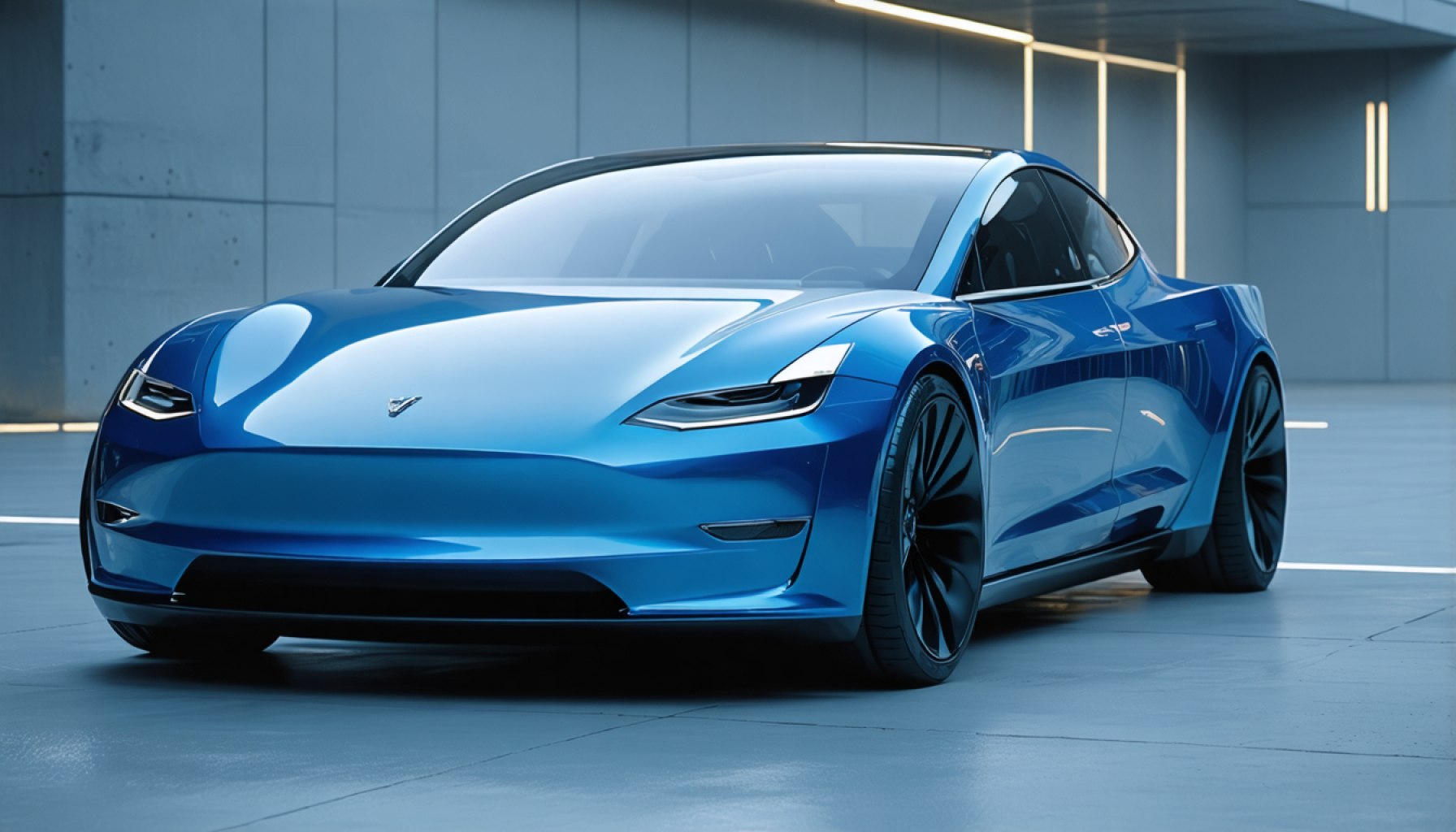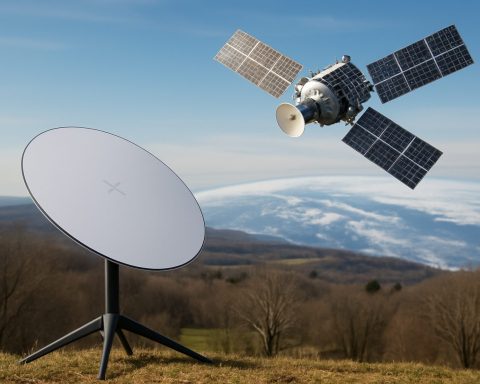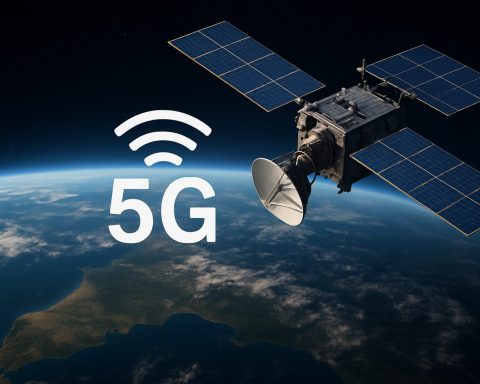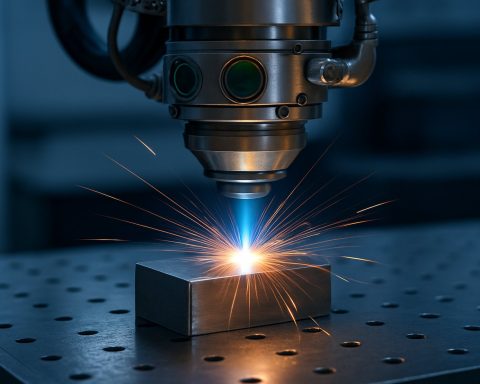- Jeff Bezos, founder of Amazon, is entering the electric vehicle market with Slate, aiming to launch a $25,000 electric pickup truck.
- Slate, an EV startup based in Detroit and backed by Bezos, intends to challenge Tesla’s Cybertruck by targeting value-conscious consumers.
- The company has assembled a notable team from industry leaders like General Motors, Ford, Stellantis, and Harley-Davidson to execute their strategy.
- The new vehicle from Slate, with a projected 2026 release, emphasizes local manufacturing and infrastructure support.
- Rumors of a prototype seen near Los Angeles have sparked speculation, highlighting the interest in Bezos’ vision for affordable EVs.
- Bezos’ venture aims to combine accessibility with sustainability, poised to disrupt the market while exploring alternative visions for electric transportation.
Under the vast canopy of the American sky, a new electric vehicle is quietly revving its engine, poised to challenge Tesla’s Cybertruck. At the helm of this daring automotive venture is none other than Jeff Bezos, the titanic force who reshaped retail and reached for the stars. The Amazon founder is now steering into the world of electric vehicles, with a freshly minted promise that echoes with innovation and ambition: a budget-friendly electric ute.
Crafted in the heart of Detroit’s storied manufacturing belt, Slate, a burgeoning EV startup backed by Bezos, seeks to upend the market. With the pledge to introduce a $25,000 electric pickup truck, Bezos casts a line into the waters of mainstream EV adoption, aiming to hook value-conscious consumers. This anticipated price point starkly contrasts with Elon Musk’s futuristic Cybertruck, crafting a narrative not of direct competition but of alternative visions—an arena where affordability meets ambition.
In typical Bezos fashion, the preparation is meticulous yet audacious. Slate has quietly assembled a powerhouse team, drawing from the experience-rich pools of General Motors, Ford, Stellantis, and Harley-Davidson. Each addition is a building block in a carefully constructed strategy that promises not just innovation, but execution—an element where start-ups often falter.
In the outskirts of Los Angeles, a sleek new silhouette has caught the keen eyes of car enthusiasts and industry insiders. Whispered rumors of this mysterious vehicle discovered outside Slate’s development hub ignite curiosity: could this be the first glimpse of Bezos’ answer to the Tesla Cybertruck? It’s a question that underscores the broader narrative—where cutting-edge technology is not just about the destination, but the journey that disrupts industries and sparks revolutions.
Bezos’ vision extends beyond simply producing an electric truck. His sights encompass a broader horizon—from bolstering local manufacturing, potentially through strategic alliances, to leveraging his state-side relationships for a robust support infrastructure. This isn’t merely about challenging the status quo; it’s about laying a foundation for an electric future that marries accessibility with sustainability.
As the wheels of this new venture turn, the world watches with bated breath. Both Bezos and Musk share a penchant for setting astronomical goals, yet the race to fruition is riddled with uncertainties. While the timeline for Slate’s ambitious production is marked for 2026, the countdown has indeed begun. Whether Bezos’ venture will swerve past the pitfalls that have ensnared others remains the prevailing question.
In this tangled dance of innovation, competition spurs forward motion. As the road opens before them, both Bezos and Musk continue to sculpt the contours of tomorrow. Their endeavors remind us that the drive to innovate isn’t just about creating new pathways; sometimes, it’s about finding a new way to reach the same destination.
Is Jeff Bezos’ $25,000 Electric Truck the Next Big Thing in EVs?
Industry Insights and Analysis
Jeff Bezos, renowned for reshaping industries, now sets his sights on the electric vehicle (EV) market with Slate, a new startup aiming to launch an affordable $25,000 electric pickup truck by 2026. This bold ambition positions Slate as a potential game-changer, catering to budget-conscious consumers where Tesla’s luxurious Cybertruck might not reach.
Key Features and Specifications
1. Affordability: Targeting a $25,000 price point significantly undercuts competitors and makes electric trucks accessible to a broader audience.
2. Made in America: Slate’s trucks will be manufactured in Detroit, tapping into the area’s rich automotive heritage and workforce expertise.
3. Experienced Team: The team includes seasoned professionals from industry giants like General Motors, Ford, Stellantis, and Harley-Davidson, ensuring a wealth of expertise in manufacturing and design.
Pressing Questions on EVs
What Makes the Slate EV Truck Stand Out?
– Affordability: With a starting price of $25,000, it’s a groundbreaking entry into the budget-friendly segment of electric vehicles.
– Strategic Collaborations: Bezos will likely leverage existing Amazon logistics and distribution channels to streamline production and distribution.
– Sustainability Goals: Slate plans to use eco-friendly materials and zero-emission technology, aligning with global sustainability targets.
How Does It Compare to the Tesla Cybertruck?
– Price: The Cybertruck starts around $39,900, placing Slate’s offering into a different category, focusing on affordability over luxury.
– Design Philosophy: While Tesla focuses on futuristic aesthetics, Slate’s design is expected to blend practicality with modern style.
– Market Strategy: Where Tesla has dominated through innovation, Bezos aims to establish dominance by democratizing electric transport.
Market Trends and Forecast
The global electric vehicle market is expected to grow exponentially, with Bloomberg predicting global EV sales to rise to 54 million by 2040. Slate’s entry at this stage positions it advantageously to capture a significant market segment, particularly in North America where truck sales are robust.
Potential Challenges
– Production Delays: As seen with many EV startups, including Tesla, ambitious timelines are often met with hurdles.
– Supply Chain Disruptions: Global semiconductor shortages and supply chain issues may impact production schedules.
– Market Competition: Other established EV players and startups may challenge Slate’s market entry, intensifying the competitive landscape.
Recommendations for Consumers
– Stay Informed: Keep an eye on Slate’s announcements and prototype reveals.
– Consider Incentives: Investigate federal and state incentives for EV purchases, which can further reduce costs.
– Test Drive: Once prototypes are available, test driving can provide personal insight into the vehicle’s suitability.
Quick Tips for EV Enthusiasts
– Research Charging Infrastructure: Ensure local charging stations support the transition to an electric vehicle.
– Home Charging Setup: Plan for home charging solutions to conveniently power your vehicle overnight.
– Eco-Friendly Perks: Utilize lower maintenance and fuel costs as additional incentives for switching to EVs.
Conclusion
Jeff Bezos’ venture into electric vehicles via Slate could influence the EV sector significantly, provided it overcomes typical startup hurdles. By emphasizing affordability, American manufacturing, and accessibility, Slate might redefine mainstream adoption of electric vehicles. For more updates and insights on consumer products and innovation, visit Amazon.
The launch of a $25,000 electric truck could indeed be transformative, urging both the industry and consumers to rethink their priorities in automotive technology. As Bezos drives the slate-time venture forward, industry dynamics may witness seismic shifts as affordability meets ambition in the EV race.











